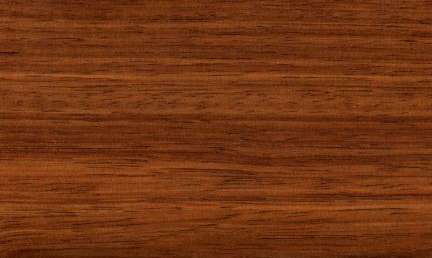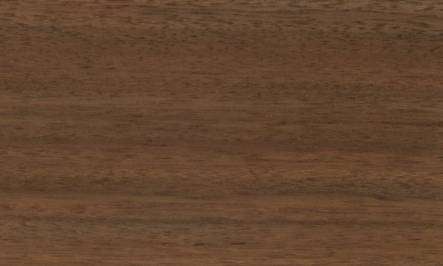 
Basralocus (Dicorynia guianensis)
Family: Leguminosae
Common names: Angelica, Angelica do Para, Angelique, Angelique batard, Angelique blanc, Angelique franc, Angelique gris, Angelique rouge, Angque blanc, Angque brd, Angque gris, Angque rouge, Bara karoeballi, Barakaroeballi, Barakaruballi, Basra locus, Basra loksi, Basralocus, Basralokus, Bastard locus, Bois angelique, Dobono-so, Kabakally, Kieereoe, Kiejere-oe, Kierou, Sienga pretoe, Siengdia apeto, Siengdia peto, Sienxa pretoe, Singapetou, Sinngapetou, Tamoene-kereoe zand locus, Tapaiuna, Teck de Guyane, Teck de la Guyane
Distributed in: Brazil, French Guiana, Guyana, Suriname (Latin America)
Distribution overview: Abundant in eastern Surinam and western French Guiana where it may make up 10% of the forest stands. Best growth on deep, loamy, well-drained soils of lowland plains but also found in wet areas.
Common uses: Agricultural implements, Barge fenders, Beams, Boat building (general), Boat building, Boat building: decking, Boat building: framing, Bridge construction, Building construction, Building materials, Cabin construction, Cabinetmaking, Canoes, Charcoal, Concrete formwork, Construction, Cooperages, Crossties, Decks, Docks, Dockwork, Domestic flooring, Door, Factory construction, Factory flooring, Flooring, Flooring: industrial heavy traffic, Form work, Foundation posts, Framing, Furniture, Harbor work, Heavy construction, Joinery, Joists, Lifeboats, Light construction, Marine construction, Millwork, Mine timbers, Moldings, Naval architecture, Paneling, Parquet flooring, Pile-driver cushions, Piling, Planks, Plywood, Plywood: veneer (marine), Poles, Porch columns, Posts, Pulp/Paper products, Raft floats, Rafts, Railroad ties, Rough construction, Shipbuilding, Structural work, Sub-flooring, Tool handles, Turnery, Vats, Vehicle parts, Veneer, Veneer: decorative, Wharf construction
Product sources: The ITTO reports that the species is an important source of timber in some areas. The timber is exported in low quantities.
Environment profile: Status has not been officially assessed
Tree size: Trunk diameter is 200-250 cm
Colors: the heart isWhite to cream, Yellow to golden-yellow to orangeand the sapwoodRed, White to yellow.The grain isWeak figure, the textureMedium to coarseand the lusterPronounced
Natural durability: Very durable, Very durable
Odor: No specific smell or taste
Silica Content: Severe
Kiln Schedules: T2 - B2 (4/4) US/T2 - B2 (4/4) US
Kiln Drying Rate: Very slow (>28 days for boards < 32 mm, to >84 days for boards >= 63 mm)
Drying Defects: Slight surface checking, Slight twist/warp
Ease of Drying: Thick Stock Requires Care
Tree Identification: Bole/stem form is straight
Comments: General finishing qualities are rated as good
Blunting Effect: Moderate
Boring: Fairly difficult to very difficult
Carving: Fairly Difficult to Very Difficult
Cutting Resistance: May require specially tipped cutters
Gluing: Very good properties
Mortising: Fairly Difficult to Very Difficult
Moulding: Fairly Difficult to Very Difficult
Movement in Service: Fairly Difficult to Very Difficult
Nailing: Pre-boring recommended, Satisfactory nailing properties
Planing: Fairly Difficult to Very Difficult
Resistance to Impregnation: Resistant sapwood
Resistance to Splitting: Poor
Response to hand tools: Variable qualities
Routing recessing: Fairly Difficult to Very Difficult
Veneering qualities: No drying degrade. Dries flat without splitting, There is slight to moderate drying degrade and the potential for buckles and splits
Screwing: Difficult to screw, Easy to screw; Turning: Fairly Difficult to Very Difficult
Painting: Good; Polishing: Very Good to Excellent; Staining: Finish is generally good
; Varnishing: Good;
- Numerical data Metric
- Numerical data English
- Strength properties
- References
 |
 |
 |
 |
| Item |
Green |
Dry |
Metric |
| Specific Gravity |
0,58 |
|
|
| Density |
|
801 |
kg/m3 |
| Bending Strength |
823 |
1254 |
kg/cm2 |
| Crushing Strength |
443 |
665 |
kg/cm2 |
| Hardness |
|
587 |
kg |
| Impact Strength |
|
|
cm |
| Shearing Strength |
|
125 |
kg/cm2 |
| Stiffness |
137 |
160 |
1000 kg/cm2 |
| Tangential Shrinkage |
8 |
|
% |
| Radial Shrinkage |
4 |
|
% |
| Weight |
785 |
608 |
kg/m3 |
| Maximum Load |
0,84 |
1,05 |
cm-kg/cm3 |
| Toughness |
|
170 |
cm-kg |
| Static Bending |
|
|
kg/cm2 |
|
 |  |  |  | | Item | Green | Dry | English | | Bending Strength | 11709 | 17838 | psi | | Density | | 50 | lbs/ft3 | | Hardness | | 1295 | lbs | | Maximum Crushing Strength | 6315 | 9459 | psi | | Shearing Strength | | 1781 | psi | | Stiffness | 1952 | 2284 | 1000 psi | | Toughness | | 148 | inch-lbs | | Work to Maximum Load | 12 | 15 | inch-lbs/in3 | | Specific Gravity | 0.58 | | | | Weight | 49 | 38 | lbs/ft3 | | Radial Shrinkage | 4 | | % | | Tangential Shrinkage | 8 | | % | | Volumetric Shrinkage | 13 | | % | |
Max. crushing strength = high 0
Modulus of Elasticity (stiffness) = high 0
Bending strength (MOR) = medium 0
Shrinkage, Tangential = fairly large 0
Hardness (side grain) = soft 0
Density (dry weight) = 46-52 lbs/cu. ft. 0
Shearing strength (parallel to grain) = low 1
Shrinkage, Volumetric = fairly large 0
Shrinkage, Radial = moderate 0
Shearing strength (parallel to grain) = medium 0
Shrinkage, Radial = fairly large
Bending strength (MOR) = high
Modulus of Elasticity (stiffness) = medium
Hardness (side grain) = medium
Shrinkage, Volumetric = large
Shrinkage, Tangential = large
Density (dry weight) =53-60 lbs/cu. ft.
Shrinkage, Radial = large
Bending strength (MOR) = very high
Shrinkage, Tangential = small
Shrinkage, Radial = very small
Hardness (side grain) = hard
Density (dry weight) = 38-45 lbs/cu. ft.
Bending strength (MOR) = low
Bena, P.,1960,Essences Forestieres de Guyane,Bureau Agricole et Forestier Guyanais GuyanaBerni, C.A., Bolza, E., Christensen, F.J.,1979,South American Timbers - The Characteristics, Properties and Uses of 190,Species,C.S.I.R.O Div. Building ResearchBodig, J. and B. A. Jayne. 1982. Mechanics of Wood and Wood Composites. Van Nostrand Reinhold Company, New York.Bois et Forets des Tropiques,1978,Angelique (Dicorynia guianensis,Bois et Forets des Tropiques No.178 pp17-18Brown, W.H.,1969,Properties and uses of Tropical hardwoods in the United Kingdom. Part 1,Nonstructural properties and uses.,Conference on Tropical hardwoods SC-5/TN-5, Syracuse UniversityBrown, W.H.,1978,Timbers of the World, No. 2 South America,TRADA, Red Booklet SeriesBrown, W.H.,1978,Timbers of the World, No. 9 Central America and the Caribbean,TRADA, Red Booklet SeriesChichignoud, M., G. Deon, P. Detienne, B. Parant and P. Vantomme.1990.Tropical Timber Atlas of Latin America.International Tropical Timber Organization (ITTO, Centre Technique Forestier Tropical, Division of CIRAD, 45 bis Avenue de la Belle Gabrielle, Nogent-sur-Marne, CEDEX, France.Chudnoff, M.,1984,Tropical Timbers of the World,U.S.A. Department of Agriculture, Forest Service, Forest Products,Laboratory, Madison.Clifford, N.,1957,Timber Identification for the Builder and Architect,Leonard Hill (Books) LTD. LondonDickinson, F.E.,1949,Properties and Uses of Tropical Woods 1,Tropical Woods,13(95,pp1-140Erfurth, T., Rusche, H.,1976,The Marketing of Tropical Wood B. Wood Species from S. American Tropical,Moist Forests,F.A.O. Forestry DepartmentFarmer, R.H.,1972,Handbook of Hardwoods,HMSOFindlay, W.P.K.,1938,The Natural Resistance to Decay of some Empire Timbers,Empire Forestry Journal,17,pp249 - 259France - C.T.F.T.,1966,Bois Tropicaux,C.T.F.T. Publ.,12France - C.T.F.T.,1973,Investigations and Tests carried out on Tropical Timber by several,Research Laboratories,CTFTFrance - Comite Nacional des Bois Coloniaux,1931,Etude Physique et Mecanique des Bois Coloniaux,Assoc. Colonies-Sciences & Comite National des Bios Coloniaux, Paris,,FranceHorn, E.F.,1948,Teredo Resistant Timbers of the Amazon Valley,Tropical Woods,12(93,pp35-40Howard, A.L.,1948,A Manual of Timbers of the World.,Macmillan & Co. Ltd. London 3rd ed.I.U.F.R.O.,1973,Veneer Species of the World,Assembled at F.P.L. Madison on behalf of I.U.F.R.O. Working Party on,Slicing and Veneer CuttingKribs, D.A.,1950,Commercial and Foreign Woods on the American Market (a manual to their,structure, identification, uses and distribution,U.S.A. Penn. State College, Tropical Woods LaboratoryKukachka, B.F.,1958,Angelique (Dicorynia gwanensis,USA Department of Agriculture, Forest Products Laboratory, Madison,,Foreign Wood Series No.1787Kukachka, B.F.,1970,Properties of Imported Tropical Woods,Forest Research Paper FPL 125Lamb, A.F.A., Wangaard, F.F.,1950,The Gluing Properties of certain Tropical American Woods,Yale Univ. School of Forestry Technical Report,4Longwood, F.R.,1962,Commercial Timbers of the Caribbean,U.S.A. Department of Agriculture, Agriculture Handbook,No.207Record, S.J., Hess, R.W.,1943,Timbers of the New World,Yale University PressRecord, S.J., Mell, C.D.,1924,Timbers of Tropical America,Yale Univ. PressRendle, B.J.,1969,World Timbers (3 Vols.,Ernest Benn Ltd. LondonRizzini, C.T.,1978,Arvores e Madeiras Uteis do Brasil: Manual de Dendrologia Brasileira,Editora Edgard Blucher LTDA BrazilSallenave, P.,1955,Proprietes Phyiques et Mecaniques des Bois Tropicaux de l'Union Francaise,C.T.F.TSallenave, P.,1964,Proprietes Physiques et Mecaniques des Bois Tropicaux (Premier Supplement,C.T.F.T. Publ.,no.23Sallenave, P.,1971,Proprietes Physiques et Mecaniques des Bois Tropicaux (Deuxieme,Supplement,C.T.F.T.Surinam Forest Service,1952,Surinam Timber - A Summary with brief descriptions of the main timber,species of Surinam,Surinam Forest ServiceT.R.A.D.A.,1982,Timbers for river and sea constructions,TRADA Wood Information Section 0, Sheet 6Takahashi, A.,1975,Compilation of data on the Mechanical Properties of Foreign Woods (Part 2,Central and South America,Shimane University, Japan, Research Report on Foreign Wood No.4Timber Development Association Ltd.,1955,World Timbers (3 Vols.,Timber Development Association Ltd.U.S.D.A. Forest Service,1974,Wood Handbook,U.S.A. Department of Agriculture, Forest Service Handbook,72Vink, A.T.,1965,Surinam Timbers,Surinam Forest Service Paramaribo,3rd rev. ed.Wangaard, F.F., Muschler, A.F.,1952,Properties and Uses of Tropical Woods 3,Tropical Woods,14(98, pp1-190Wangaard, F.F.,1951,The Physical Properties of Tropical Woods,F.A.O. For. & For. Prod. Studies Series No.3 Tropical Woods and Ag.,Residues as sources of pulp,pp10-16Wolcott, G.N.,1950,An Index to the Termite Resistance of Woods,Agricultural Experimental Station, University of Puerto Rico Bulletin,No.85Woods, R.P.,1949,Timbers of South America,TRADA, Red Booklet SeriesWood, B., Calnan, D.,1976,Toxic Woods,British Journal of Dermat 94 Suppl. 13
|









